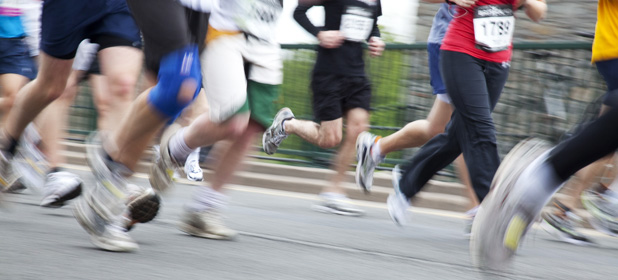
I do a lot of work in health behaviour change in the NHS and one of the main goals for my clients is to get a healthier weight through being more active and eating more nutritious food (I hate the word ‘diet’). Essentially they are trying to develop new healthy habits and extinguish old unhealthy […]

To be healthy is not just about ridding yourself of disease but it is also about being in a state of complete physical, mental and social well being (Edwards, Edwards & Basson, 2004).. Recently positive mental health has been studied in much depth and wellbeing is now being acknowledged as extremely important for every athlete. […]

Introduction Firstly I should state that I’m not a mental health expert. I have however studied sport and exercise psychology, therefore the effects that sport and exercise have on our mental attitude (and vice-versa) is of immense interest to me. As a result I’m going to approach this article from an exercise psychology perspective and outline […]

Approximately 60% of men, 70% of women, 30% of boys and 40% of girls do not meet recommended levels of physical activity. Physical inactivity is one of the leading causes of death in developed countries, responsible for: 22-23% of CHD 16-17% of colon cancer 15% of diabetes 12-13% of strokes 11% of breast cancer By increasing levels […]

In this article we shall look at the effects that exercise has on psychological well/ill being. In todays society 25% of people experience anxiety disorders and 20% of people experience depression (Dishman, 2004). By 2020, depression will be second only to cardiovascular disease as the leading cause of death and disability (Lopez, 1997). Many studies have […]

Sport and Exercise Psychology is often at the forefront of cutting edge elite sport, helping athletes create a personal tool box and skill set to enable them to unlock their individual physical and psychological potential within their specific sport and in their daily life facing the pressure that is a part of being an elite […]

Mêdraœ and Bidziñska (2004) found that recreational males, former athletes and people who participate in aerobic exercise or sports (e.g. running, swimming, cycling) regularly engage in exercise addictive behaviours. But, the difference between commitment and addiction to exercise has been disputed. Commitment and addiction can be differentiated through the intellectual analyse of rewards and rationales […]

Throughout sport, exercise has been universally acknowledged as a healthy habit which can have many psychological and physical benefits for an individual (Szabo & Griffiths, 2007: Bouchard, Shephard & Stephens, 1994). Paradoxically, exercise behaviour is now being looked at in a different light due to obsessive exercise being seen as a type of addiction (Garman, […]

There are many physical and psychological benefits of exercise, so it might seem paradoxical that there is also a risk that, at really high levels, excessive exercise may produce negative effects, including an unhealthy addiction to it. What is Exercise Dependence? A psychologist called William Glaser was the first to differentiate between a negative addiction […]

Last year several newspapers reported the failure of a randomised controlled trial to identify any additional long-term benefit of ‘facilitated exercise’ over and above conventional care (such as counselling and medication) for people with depression (Chalder et al., 2012). These findings were reported with dramatic headlines such as ‘Exercise “of no benefit” in fight against […]

